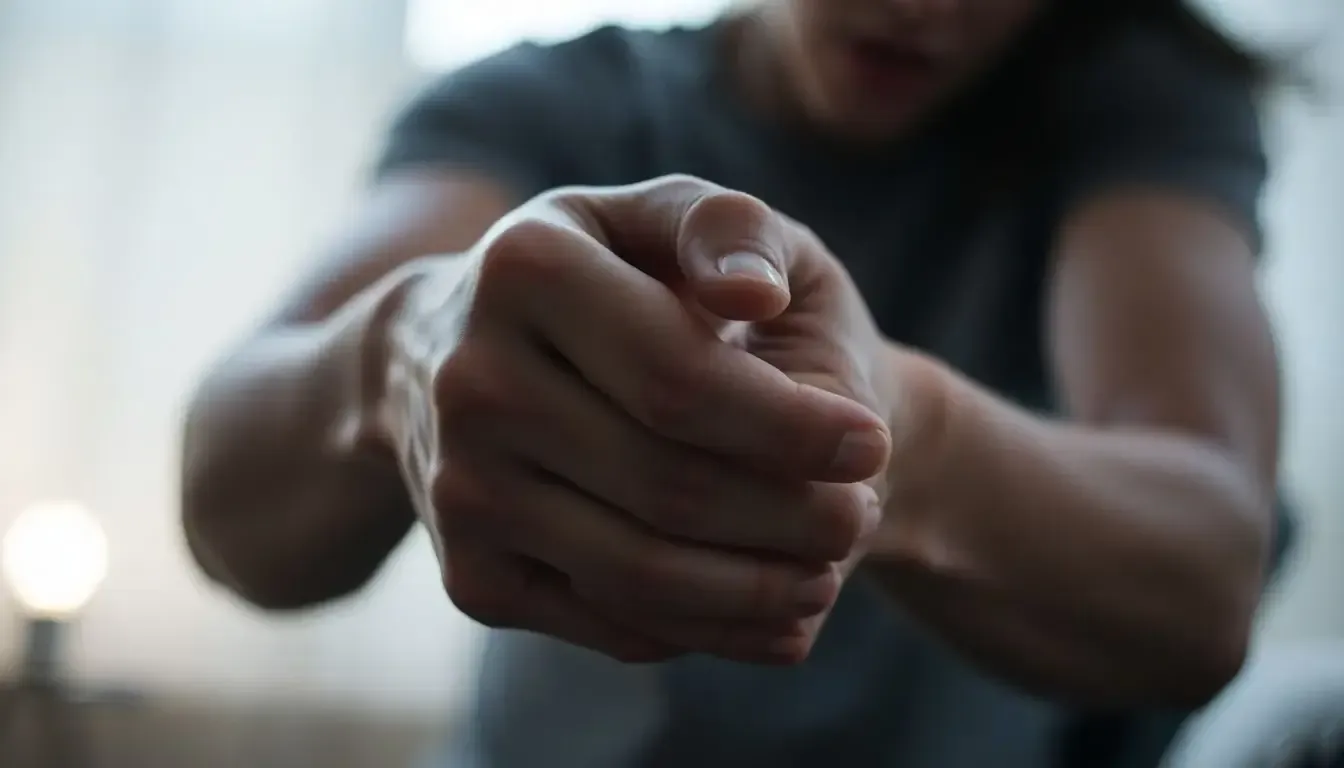 |
| The hands are clenched, showing a feeling of stress. |
Ever feel like you are drowning? Overwhelmed by everything on your plate? It's easy to brush these feelings aside. Are they just stress or is it something more?
Stress and anxiety are common human experiences. Both can impact how we feel and function every day. Knowing the difference is key to taking care of yourself.
This article will explore the main differences. It will cover how to identify stress and anxiety. Plus, we'll discuss some effective ways to deal with both.
Understanding Stress: The Body's Response to Demands
Stress is a part of life. But what exactly is it? How does your body react?
What is Stress? A Clear Definition
Stress is your body's reaction to any demand or pressure. These pressures can come from many places. Work, school, or even relationships can cause it. Imagine a looming deadline at work. That deadline is a stressor. It creates pressure to finish on time.
The Body's Reaction to Stress: The Stress Response
When stressed, your body kicks into "fight-or-flight" mode. Your heart races, and you may sweat. This is because of hormones like cortisol and adrenaline. The reaction helps you deal with the situation. It is how your body prepares to face the stressor head-on or run away.
Common Causes of Stress
Many things cause stress. Work is a big one, along with relationship troubles. Financial worries are also common. Health issues can also bring on stress. In fact, a recent study showed that workplace stress affects most adults.
Understanding Anxiety: More Than Just Worry
Anxiety is more than just being worried. It can be a persistent and overwhelming feeling. What does anxiety really mean?
What is Anxiety? Defining the Condition
Anxiety is excessive worry or fear. It's often out of proportion to the situation. Think of it as worry that's hard to control. It impacts your daily life.
Types of Anxiety Disorders
There are different kinds of anxiety disorders. Generalized anxiety disorder (GAD) involves constant worry. Panic disorder causes sudden, intense fear. Social anxiety disorder makes social situations scary. Phobias are extreme fears of specific things.
Symptoms of Anxiety
Anxiety shows up in many ways. You might feel restless or have trouble sleeping. Physical symptoms include a racing heart or stomach issues. You may avoid social situations, too. For example, someone with social anxiety might avoid public speaking.
Key Differences Between Stress and Anxiety
It is vital to know how to tell stress and anxiety apart. The triggers, how long it lasts, and its intensity are important factors. What you worry about also differs. So does how much it impacts your life.
Triggers and Causes
Stress usually has clear triggers. A big project at work or a family issue can cause stress. Anxiety can be more generalized. It may not have an obvious cause. Sometimes, it's just a feeling of unease.
Duration and Intensity
Stress is often short-term. It fades when the problem is fixed. Anxiety can stick around for a while. It can feel overwhelming and hard to shake off.
The Role of Worry
Stress involves worry about specific problems. "Will I finish this project on time?" Anxiety involves constant, uncontrollable worry. It might be about many things at once.
Coping Strategies for Stress
Managing stress is possible with the right tools. Time management is key. So are relaxation techniques. Exercise and mindfulness can make a big difference.
Practical Tips for Managing Stress
Good time management can reduce stress. Prioritize tasks and make a schedule. Try to delegate when you can. Setting boundaries is also important. Learn to say "no" to extra commitments.
Relaxation Techniques
Relaxation techniques can calm your mind. Deep breathing exercises are easy to do anywhere. Meditation can help you focus. Progressive muscle relaxation eases tension in your body.
The Importance of Exercise
Physical activity is a great stress reliever. It boosts your mood and improves your health. Even a short walk can help clear your head.
Managing Anxiety: Finding Relief and Support
There are ways to manage anxiety and feel better. Therapy, especially CBT, can help. Medication can also be an option. Lifestyle changes make a big difference too.
Therapy Options for Anxiety
Cognitive Behavioral Therapy (CBT) helps change negative thought patterns. Exposure therapy helps you face your fears gradually. Both can be really useful in reducing anxiety.
Lifestyle Changes That Can Help
A regular sleep schedule can improve anxiety. Eating a healthy diet is also important. Limiting caffeine and alcohol can reduce anxiety symptoms.
Seeking Professional Help
Don't hesitate to get help if anxiety is too much. A therapist or psychiatrist can provide support. They can offer guidance and treatment options.
When to Seek Professional Help
Knowing when to seek help is crucial. Don't wait until things get unbearable. Your mental health is important.
Recognizing the Signs
Look for persistent symptoms. Do you have trouble functioning daily? Are you having suicidal thoughts or harming yourself? These are signs you need help.
How to Find a Mental Health Professional
There are many resources to find a therapist. Online directories can help you locate someone. Your doctor can also provide referrals.
Conclusion
Understanding the difference between stress and anxiety is key. It helps you to manage your mental health. Stress is often tied to a specific trigger. Anxiety is more persistent and generalized. Use the strategies discussed here to find relief.
Remember, you're not alone. Help is out there when you need it.
